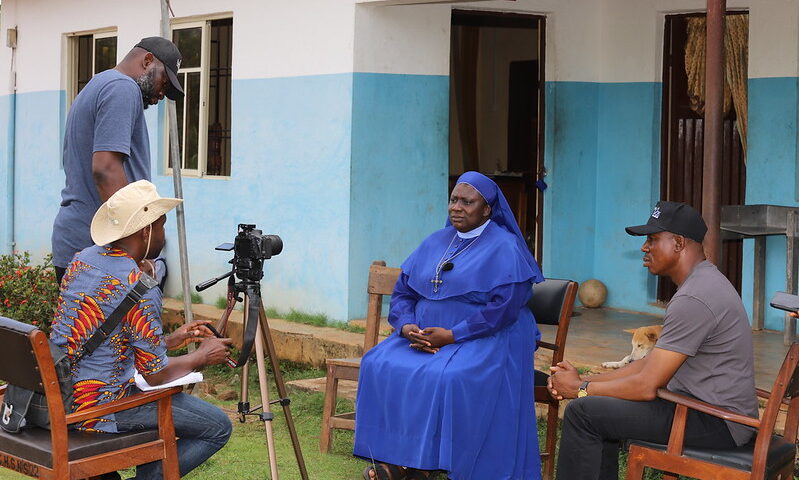Some Cassava Seed entrepreneurs (CSEs) operating under the Building an Economically Sustainable Integrated Cassava Seed System, Phase 2 (BASICS-II) project have recently been sharing inspirational stories of their successes in the cassava seed business. These stories were captured by a media team from the Sasakawa Africa Association Nigeria, a partner of the BASICS-II project. The team visited the CSEs in their homes in Benue, Nasarawa, Abia, Imo and Akwa Ibom.
The Project Manager of the BASICS-II Project, Prof Lateef Sanni, described the success stories as indicators of the transformative impact that a formal and sustainable cassava seed system could have on the cassava sector.
He said: “I am glad that the experiences they shared even started from the first phase of the project from 2015 to 2020 when some of them were Village Seed Entrepreneurs (VSEs) and the progress they’ve made as Cassava Seed Entrepreneurs(CSEs) within the framework of the BASICS model developed in the second phase (BASICS-II) which began in 2020”.
The Country Director of SAA Nigeria, Dr Godwin Atser said, “Cassava Seed Entrepreneurs are making a lot of money selling certified and quality cassava stems of improved cassava varieties in Nigeria. They have also been instrumental in scaling improved varieties in cassava farming communities in the country. Sasakawa Nigeria is working with the BASICS-II Project to establish more of these CSEs in Nasarawa and Benue, and many of them are organised in cooperative groups.
Speaking on the significance of the CSEs’ stories, Dr Atser said: “These stories will no doubt inspire newcomers in the cassava seed business, and show the importance of cassava seed system to food security, productivity enhancement, income generation and job creation.”
The stories showed that in addition to making money for themselves, the CSEs were contributing immensely to the development of their communities, investing in schools, Youth & women empowerment and job creation.
More than a dozen CSEs shared their success stories. One of them, 55-year old Chief Stanley Unah, in Otukpo Benue State, showed the new tractor he acquired from proceeds of cassava seed business which he said had increased his financial ability to acquire new equipment and diversify his agricultural investments. In Itak-Ikot-Oboise, a community in Ini Local government Area of Akwa Ibom state, members of the community are substantial partakers in the financial and material accomplishments of Prince Michael Ekanem. He narrated to the team, which had colleagues from National Root Crops Research Institute (NRCRI) Umudike (Drs Mark Tokula and Ivy Nwokocha), how he built a beautiful house for himself, and has been channeling part of his cassava seed profit to the development of the schools he established in the community. He recently raised a block of classroom in the secondary school to a storey building from money gotten from cassava stems.
WWW.CASSAVAMATTERS.ORG has concluded plans to publish these stories and many others in a series.

